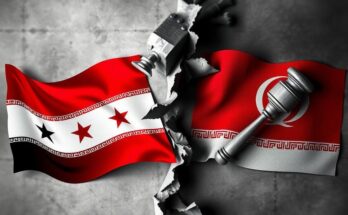Muammar al-Qaddafi was Libya’s ruler from 1969 until his death in 2011, following a violent revolt against his regime. His governance was defined by nationalization, Islamic socialism, and aggressive foreign policies. Despite initial successes, his violent repression of dissent led to increasing opposition, culminating in NATO intervention and his eventual death.
Muammar al-Qaddafi, born in 1942 near Sirte, Libya, rose to prominence as the de facto leader of Libya following a military coup in 1969 that ousted King Idris I. His tenure, which lasted over four decades, was characterized by numerous nationalizations of resources, particularly the oil industry, and a pronounced adherence to Islamic principles in governance, exemplified in his influential work, “The Green Book.” His rule witnessed the removal of foreign military bases from Libya and a fervent advocacy for Arab nationalism, often leading him to engage in military interventions and support for various revolutionary groups across the globe, resulting in his government’s involvement in terrorist activities, most notably the Lockerbie bombing in 1988. Despite early successes, including the lifting of UN sanctions against Libya in 2003 after cooperation concerning the Lockerbie incident, Qaddafi’s later years were marred by escalating unrest. In February 2011, against the backdrop of regional uprisings, protests erupted in Libya, met with violent repression from Qaddafi’s forces. The internal strife culminated in NATO intervention, designed to protect civilians, which ultimately contributed to a shift in power dynamics favoring the opposition. By August 2011, rebel forces captured Tripoli, leading to Qaddafi’s eventual demise on October 20, 2011, in a final concerted assault in his hometown of Sirte. His death marked the end of an era and ignited substantial reflection on his complex legacy, as his regime had profoundly shaped both Libya’s domestic policies and its international relations.
Muammar al-Qaddafi’s life and leadership are deeply intertwined with Libya’s political evolution throughout the late 20th and early 21st centuries. Born into a modest family in the Libyan desert, Qaddafi’s rise was propelled by his military education and aspirations toward Arab unity. His policies, which were often extreme and heavily nationalistic, reflected a commitment to socialized economics and a rejection of Western imperialism. Historical contexts and regional dynamics, especially the Cold War and Arab nationalism, significantly influenced his foreign interventions and alliances. Qaddafi’s legacy is contentious; he is viewed variously as a revolutionary leader fighting against imperialism and as a tyrant who employed terrorism and oppression to maintain his hold on power.
In conclusion, Muammar al-Qaddafi was a prominent and controversial figure in Libyan and international politics. His long reign was marked by significant attempts to reshape Libya’s governance, economy, and position in the Arab world. However, his aggressive tactics against dissent and involvement in international terrorism ultimately led to his downfall during the Libyan uprising of 2011, resulting in his death and leaving behind a complex and controversial legacy that continues to influence Libya’s political landscape.
Original Source: www.britannica.com




